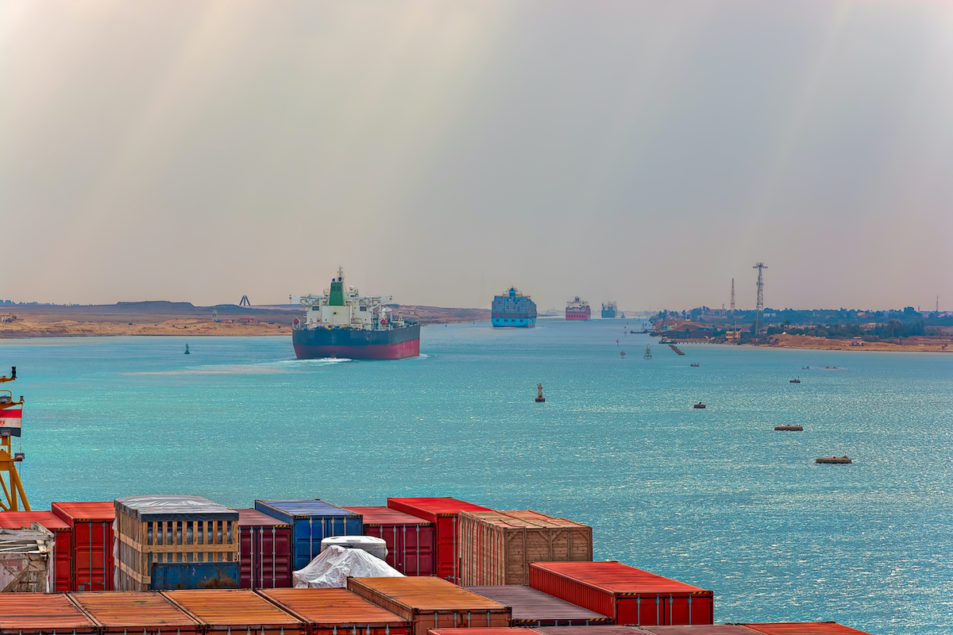Houthi attacks on commercial vessels in the Red Sea led to a 90% decline in container shipping through the area between December and February, U.S. intelligence officials said in their first formal assessment of the rebel campaign’s economic impact.
The attacks have impacted at least 65 countries and forced at least 29 major energy and shipping companies to alter their routes, according to the rare public assessment by the Pentagon’s Defense Intelligence Agency. Alternate shipping routes around Africa added around 11,000 nautical miles to each journey, increasing fuel costs by approximately $1 million for each voyage.
“Threats to Red Sea transits are compounding ongoing stress to global maritime shipping caused by interruptions at the Panama Canal due to drought,” the Defense Intelligence Agency said.
The U.S. and the U.K. have launched repeated airstrikes on the Yemen-based Houthis in a bid to curtail their ability to target ships in the region, while also looking to block their revenue sources and impose other financial sanctions. So far, though, the group has been undeterred, and the economic fallout has only continued to widen.
The Houthis began launching the attacks last year to put pressure on Israel and its allies over the war in the Gaza Strip. On Wednesday, a commodities carrier called Tutor suffered severe flooding in its engine room following the first successful attack from a seaborne drone during the current Houthi campaign. And a small cargo ship was on fire on June 13 after being hit by two projectiles.
The Red Sea attacks have also impacted humanitarian relief efforts. Aid for Sudan and Yemen has been delayed by weeks as a result of longer routes around Africa, the report said.





